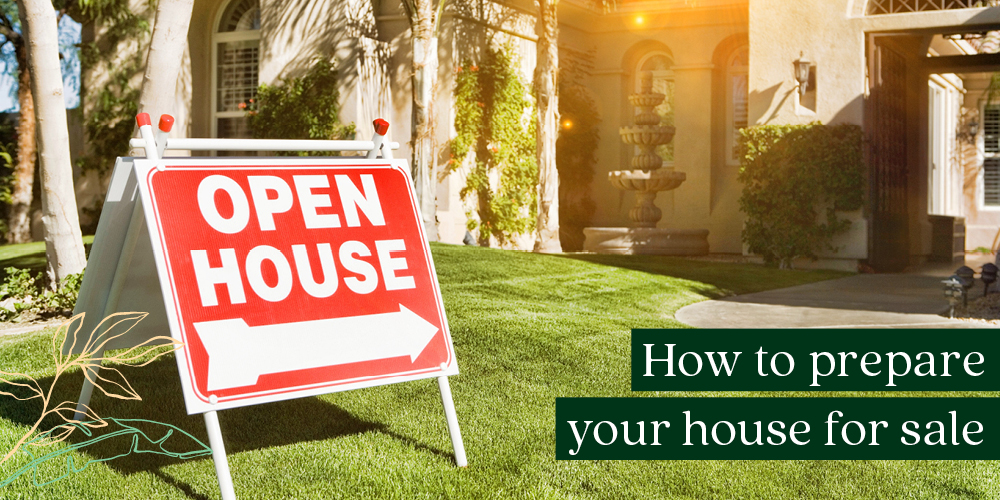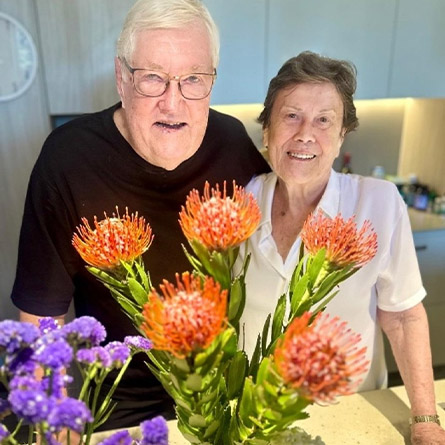The decision to sell your house isn’t always straightforward. If you’re unsure of what the sales process involves and you’re looking for advice, we have some tips and suggestions that we’ve gathered over the years from our residents to help you get the best outcome.
If you’ve lived in your house for years or even decades, it can sometimes be hard to move on. The process of selling your home can also feel daunting. While change can be uncomfortable, it is also an exciting step forward to your new home at The Green, where you will discover a great community and embark on a wonderful stage in life. Before you dive into retirement living you will need to prepare your home for sale. To get the best result it can help to have an idea of what to expect from the sales process.
Do your homework
Most people use a real estate agent to sell their home to help make the process easier and get the best price possible. Before you choose an agent, start by researching local real estate agencies. If you have friends or family close by, it’s great to ask for personal recommendations. After all, this will be the biggest sale you’re likely to make, and having trust and respect for the agent is crucial.
To get a gauge for what similar properties are worth, check out listings and recent sales prices in your area. It can be a good idea to visit local open homes and see how the agent treats prospective buyers and answers questions. Some things you could ask include: whether the vendors are willing to negotiate the sale price, how long the property has been on the market and why they’re selling. Don’t mention that you’re selling and see who calls you back, as this can be a good indicator of a hard-working agent.
Then, create a shortlist of at least three agents you would like to meet face-to-face and don’t be afraid to ask questions when you meet them. Here are some for consideration:
- Would they recommend a private sale or auction? Why?
- How much are their agents’ fees, and how do they calculate this figure? Is it a fixed fee or a percentage of the sale price? This is also known as commission and is generally between 1.5% and 3.5% of the agreed price. Most agents’ fees don’t include marketing and advertising, so be clear on how much the recommended campaign would cost.
- How would they go about marketing your home? This could involve web listings, sign boards outside your house, photography, floor plans and copywriting, as well as social media and email campaigns.
- What work (if any) would they recommend you do to make your home more attractive to buyers?
- How would they value your home? Can they provide you with a property profile that includes information about sales of comparable properties in your area? Would they recommend specifying an asking price (if not going to auction), or a broader price guide?
- Are there other agents in the agency who will be showing the property?
Choose an agent
Residents tell us that doing your research and meeting with several agents will give you a good idea of what your property is worth. You’ll also have a good sense of which agent is best suited to you. Keep in mind that some agents could be tempted to overvalue your property to increase the likelihood of getting your business. So base your decision on many factors – not just who has the lowest commission or says they could obtain the highest sale price.
When RetireAustralia resident, Gordon Crawford put his home on the market to move into Tarragal Glen Retirement Village, he found: “By researching and finding a good agent and with the housing market on a high, the sale process was very fast and we had a decent level of free cash to set up our new home”.
Prepare your home for sale
To maximise its potential value, look at your home with a critical eye and decide whether a small upfront investment could have a big impact. There are several ways you could make your home more attractive to prospective buyers:
- Assess the frontage of your home, as some buyers will drive past before they commit to attending an open house. Would the garden benefit from some tidying or weeding, or can you add a splash of colour with new plants or pots?
- Keep things as open, airy and uncluttered as possible. This might mean putting some furniture in storage during the sale process.
- Neutral colours are best. Consider painting over any obvious marks, or even re-painting if the paint job is tired or the colours are dated.
- Fix anything in need of obvious repair, and attend to small maintenance jobs, like missing light globes or loose door handles.
- Have your carpets professionally cleaned.
- Tidy up your cupboards. It’s easy to think ‘out of sight, out of mind’, but buyers are sure to open cupboards and drawers to get a good idea of storage space.
- Clear the clutter. This will help your home look bigger and more spacious. Think big – taking away unnecessary furniture. As well as small – clearing any flat surface, having tidy kitchen bench tops and removing fridge magnets.
- Help prospective buyers see themselves living in your house, by removing any bold furniture or artwork, as well as personal touches like photographs.
Inspection day
You already know that your house should be spotless on inspection day, with no laundry or washing up in sight. There are some other small things you can do that make a big difference, such as turn on all the lights and, open the windows and doors, as this will show your house at its best. Keep your home as comfortable as possible, with fans or air conditioning on in summer, and a fire or heater in the cooler months. It helps to have a bright bunch of flowers in the kitchen to add a splash of colour. Finally, make sure you leave the house during inspections to help put prospective buyers at ease. This includes any pets who live with you!
Other costs
As well as covering your agents’ fees and marketing campaign, keep in mind that you’ll need some money set aside for conveyancing. This simply means the legal transfer of ownership from you to the buyer. If you have a mortgage on the house you’re selling, you may also need to pay your bank or lender an early exit fee. The cost of selling your home varies by state, but you can find a comprehensive breakdown of likely real estate agent commission, marketing and conveyancing fees.
Need advice?
For more advice about buying and selling a property in New South Wales, go to Fair Trading: advice on on selling a property.




